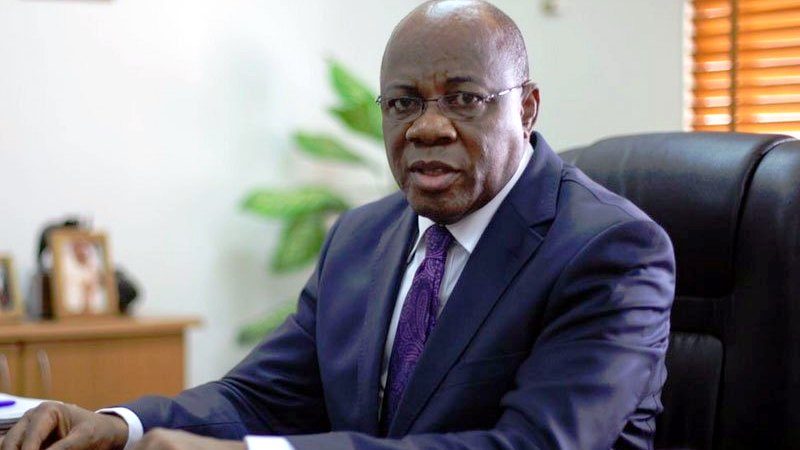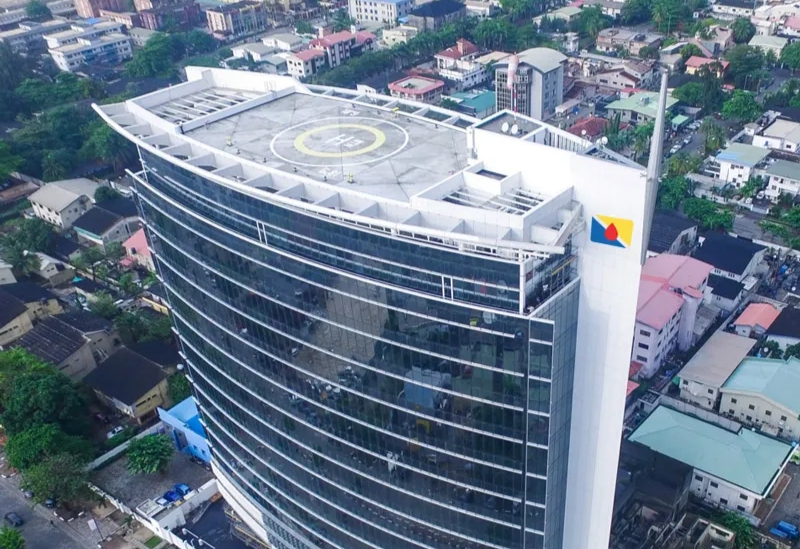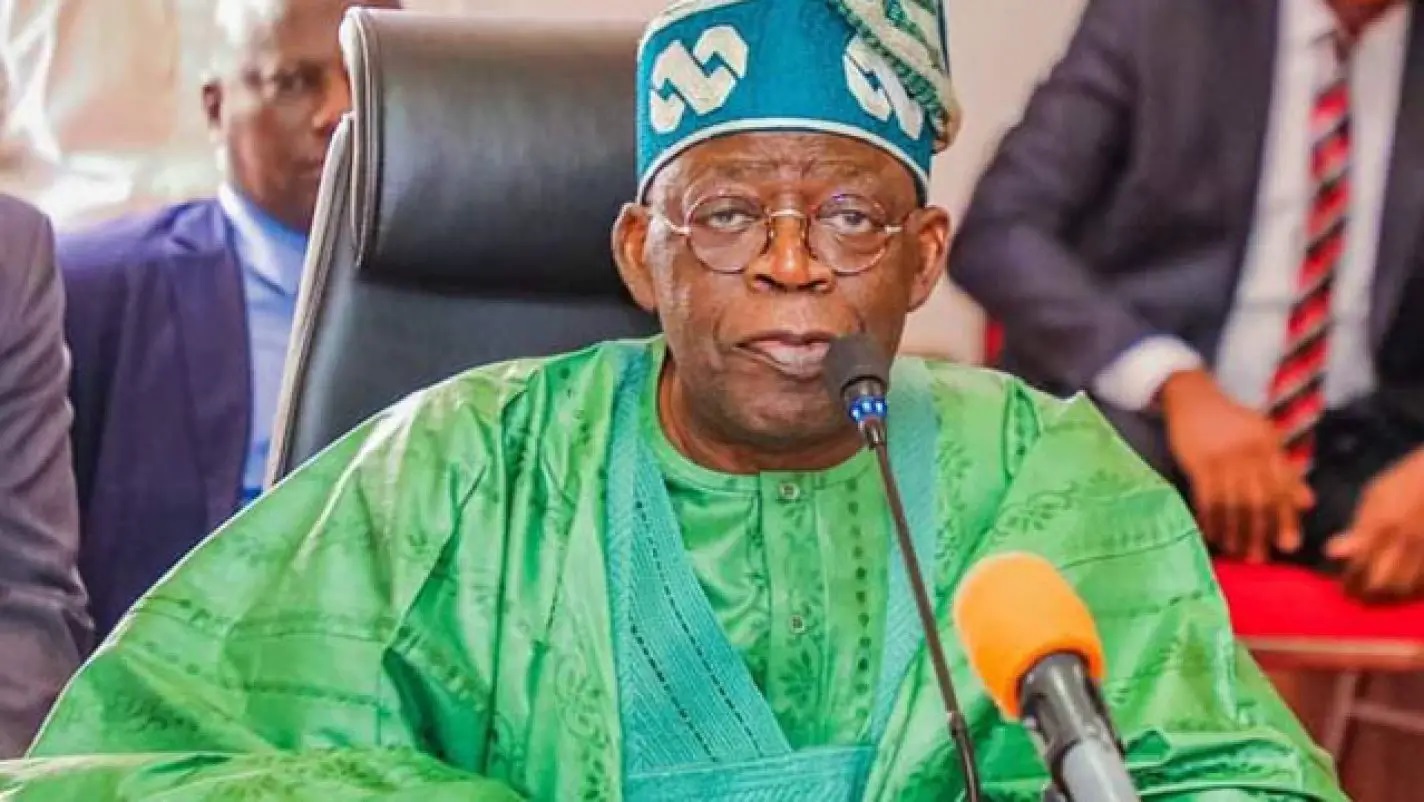Anambra Guber: Proliferation of Small Arms, Armed Non-State Actors May Disrupt Poll, Says Report
Anambra Guber: Proliferation of Small Arms, Armed Non-State Actors May Disrupt Poll, Says Report
Linus Aleke in Abuja
A report by a civil society organisation, CLEEN Foundation, has revealed that the proliferation of small arms and light weapons—alongside the violent activities of non-state armed groups such as IPOB/ESN, politically sponsored cult groups and thugs, the rise of state-sponsored armed vigilantes, as well as misinformation campaigns—may mar the scheduled November governorship election in Anambra State, if urgent steps are not taken to mitigate these identified challenges.
The report also identified Ihiala, Ogbaru, Nnewi South, Orumba North, and Onitsha North as high-risk local government areas to monitor during the poll.
CLEEN Foundation disclosed these threats while officially unveiling the 2025 Anambra Governorship Election Security Threat Assessment (ESTA) in Abuja on Tuesday.
Presenting the report to the public, the Director of Programmes at CLEEN Foundation, Dr Salaudeen Hashim, noted that Anambra East, Oyi, Nnewi North and Awka North were also mapped as emerging flashpoints.
He stated that the key security risks in the five high-risk LGAs included IPOB-linked violence, sit-at-home enforcement, attacks on INEC offices, riverine insecurity, arms stockpiling, political thuggery, cultism, forest training camps, political assassinations, vigilante-politician collusion, inadequate police coverage, cult turf wars, and youth gang mobilisation.
Emphasising key findings of the report, Hashim itemised them as: heightened insecurity in specific LGAs, politicisation of cult and youth gangs, weak security infrastructure and institutional gaps.
Other concerns, he said, included voter suppression through fear, misinformation and mobility constraints, community fragmentation, and manipulation of traditional institutions.
He said: “Fear of violence, targeted killings and widespread misinformation campaigns—especially via social media—have suppressed voter confidence, particularly in volatile areas. There is also evidence of voter migration from unsafe LGAs to more stable ones, which may skew electoral logistics and turnout.”
To mitigate these identified threats, the ESTA report recommended LGA-specific risk mapping and early warning systems, disarmament of politically linked cult groups, improved security infrastructure, and equitable security deployment. It also calls for countering voter suppression and misinformation.
Additional recommendations include capacity building for the Inter-agency Consultative Committee on Election Security (ICCES) and other security personnel, intensifying voter education campaigns, and empowering community and traditional institutions to promote peace and social cohesion.
The director of programmes stressed that the resurgence of armed secessionist violence, the proliferation of politically sponsored cult groups, and institutional weaknesses within security and electoral agencies collectively threaten the credibility, inclusiveness and safety of the upcoming election.
Earlier, in his welcome address, the Acting Executive Director of CLEEN Foundation, Peter Maduoma, said the document provided an in-depth briefing on the findings of the Foundation’s comprehensive Election Security Threat Assessment, which highlights potential flashpoints, actors of concern, triggers of violence, and mitigation strategies ahead of the November 2025 elections.
He stated that the primary objective of the report’s unveiling is to ensure that the Security Threat Assessment is accessible, understandable and actionable for all stakeholders, including government officials, law enforcement agencies, civil society organisations, and the general public.
Maduoma added that CLEEN aims to enhance public awareness, encourage proactive security measures and promote peaceful electoral processes.
Linus Aleke in Abuja A report by a civil society organisation, CLEEN Foundation, has revealed that the proliferation of small arms and light weapons—alongside the violent activities of non-state armed
Read moreAnambra Guber: Proliferation of Small Arms, Armed Non-State Actors May Disrupt Poll, Says Report
Anambra Guber: Proliferation of Small Arms, Armed Non-State Actors May Disrupt Poll, Says Report
Linus Aleke in Abuja
A report by a civil society organisation, CLEEN Foundation, has revealed that the proliferation of small arms and light weapons—alongside the violent activities of non-state armed groups such as IPOB/ESN, politically sponsored cult groups and thugs, the rise of state-sponsored armed vigilantes, as well as misinformation campaigns—may mar the scheduled November governorship election in Anambra State, if urgent steps are not taken to mitigate these identified challenges.
The report also identified Ihiala, Ogbaru, Nnewi South, Orumba North, and Onitsha North as high-risk local government areas to monitor during the poll.
CLEEN Foundation disclosed these threats while officially unveiling the 2025 Anambra Governorship Election Security Threat Assessment (ESTA) in Abuja on Tuesday.
Presenting the report to the public, the Director of Programmes at CLEEN Foundation, Dr Salaudeen Hashim, noted that Anambra East, Oyi, Nnewi North and Awka North were also mapped as emerging flashpoints.
He stated that the key security risks in the five high-risk LGAs included IPOB-linked violence, sit-at-home enforcement, attacks on INEC offices, riverine insecurity, arms stockpiling, political thuggery, cultism, forest training camps, political assassinations, vigilante-politician collusion, inadequate police coverage, cult turf wars, and youth gang mobilisation.
Emphasising key findings of the report, Hashim itemised them as: heightened insecurity in specific LGAs, politicisation of cult and youth gangs, weak security infrastructure and institutional gaps.
Other concerns, he said, included voter suppression through fear, misinformation and mobility constraints, community fragmentation, and manipulation of traditional institutions.
He said: “Fear of violence, targeted killings and widespread misinformation campaigns—especially via social media—have suppressed voter confidence, particularly in volatile areas. There is also evidence of voter migration from unsafe LGAs to more stable ones, which may skew electoral logistics and turnout.”
To mitigate these identified threats, the ESTA report recommended LGA-specific risk mapping and early warning systems, disarmament of politically linked cult groups, improved security infrastructure, and equitable security deployment. It also calls for countering voter suppression and misinformation.
Additional recommendations include capacity building for the Inter-agency Consultative Committee on Election Security (ICCES) and other security personnel, intensifying voter education campaigns, and empowering community and traditional institutions to promote peace and social cohesion.
The director of programmes stressed that the resurgence of armed secessionist violence, the proliferation of politically sponsored cult groups, and institutional weaknesses within security and electoral agencies collectively threaten the credibility, inclusiveness and safety of the upcoming election.
Earlier, in his welcome address, the Acting Executive Director of CLEEN Foundation, Peter Maduoma, said the document provided an in-depth briefing on the findings of the Foundation’s comprehensive Election Security Threat Assessment, which highlights potential flashpoints, actors of concern, triggers of violence, and mitigation strategies ahead of the November 2025 elections.
He stated that the primary objective of the report’s unveiling is to ensure that the Security Threat Assessment is accessible, understandable and actionable for all stakeholders, including government officials, law enforcement agencies, civil society organisations, and the general public.
Maduoma added that CLEEN aims to enhance public awareness, encourage proactive security measures and promote peaceful electoral processes.
Linus Aleke in Abuja A report by a civil society organisation, CLEEN Foundation, has revealed that the proliferation of small arms and light weapons—alongside the violent activities of non-state armed
Read moreAnambra Guber: Proliferation of Small Arms, Armed Non-State Actors May Disrupt Poll, Says Report
Anambra Guber: Proliferation of Small Arms, Armed Non-State Actors May Disrupt Poll, Says Report
Linus Aleke in Abuja
A report by a civil society organisation, CLEEN Foundation, has revealed that the proliferation of small arms and light weapons—alongside the violent activities of non-state armed groups such as IPOB/ESN, politically sponsored cult groups and thugs, the rise of state-sponsored armed vigilantes, as well as misinformation campaigns—may mar the scheduled November governorship election in Anambra State, if urgent steps are not taken to mitigate these identified challenges.
The report also identified Ihiala, Ogbaru, Nnewi South, Orumba North, and Onitsha North as high-risk local government areas to monitor during the poll.
CLEEN Foundation disclosed these threats while officially unveiling the 2025 Anambra Governorship Election Security Threat Assessment (ESTA) in Abuja on Tuesday.
Presenting the report to the public, the Director of Programmes at CLEEN Foundation, Dr Salaudeen Hashim, noted that Anambra East, Oyi, Nnewi North and Awka North were also mapped as emerging flashpoints.
He stated that the key security risks in the five high-risk LGAs included IPOB-linked violence, sit-at-home enforcement, attacks on INEC offices, riverine insecurity, arms stockpiling, political thuggery, cultism, forest training camps, political assassinations, vigilante-politician collusion, inadequate police coverage, cult turf wars, and youth gang mobilisation.
Emphasising key findings of the report, Hashim itemised them as: heightened insecurity in specific LGAs, politicisation of cult and youth gangs, weak security infrastructure and institutional gaps.
Other concerns, he said, included voter suppression through fear, misinformation and mobility constraints, community fragmentation, and manipulation of traditional institutions.
He said: “Fear of violence, targeted killings and widespread misinformation campaigns—especially via social media—have suppressed voter confidence, particularly in volatile areas. There is also evidence of voter migration from unsafe LGAs to more stable ones, which may skew electoral logistics and turnout.”
To mitigate these identified threats, the ESTA report recommended LGA-specific risk mapping and early warning systems, disarmament of politically linked cult groups, improved security infrastructure, and equitable security deployment. It also calls for countering voter suppression and misinformation.
Additional recommendations include capacity building for the Inter-agency Consultative Committee on Election Security (ICCES) and other security personnel, intensifying voter education campaigns, and empowering community and traditional institutions to promote peace and social cohesion.
The director of programmes stressed that the resurgence of armed secessionist violence, the proliferation of politically sponsored cult groups, and institutional weaknesses within security and electoral agencies collectively threaten the credibility, inclusiveness and safety of the upcoming election.
Earlier, in his welcome address, the Acting Executive Director of CLEEN Foundation, Peter Maduoma, said the document provided an in-depth briefing on the findings of the Foundation’s comprehensive Election Security Threat Assessment, which highlights potential flashpoints, actors of concern, triggers of violence, and mitigation strategies ahead of the November 2025 elections.
He stated that the primary objective of the report’s unveiling is to ensure that the Security Threat Assessment is accessible, understandable and actionable for all stakeholders, including government officials, law enforcement agencies, civil society organisations, and the general public.
Maduoma added that CLEEN aims to enhance public awareness, encourage proactive security measures and promote peaceful electoral processes.
Linus Aleke in Abuja A report by a civil society organisation, CLEEN Foundation, has revealed that the proliferation of small arms and light weapons—alongside the violent activities of non-state armed
Read more‘Nigeria’s economy has turned a corner’ – Tinubu warns against ‘negative talk’
President Bola Tinubu has said Nigerians will soon start experiencing prosperity under his administration. He spoke in Owerri, the Imo State Capital on Tuesday, where he urged Nigerians to be patient. Tinubu said, “Nigeria’s economy just turned a corner and you will receive prosperity, those talking negative of this country should stop saying so. “Just
‘Nigeria’s economy has turned a corner’ – Tinubu warns against ‘negative talk’
President Bola Tinubu has said Nigerians will soon start experiencing prosperity under his administration.
He spoke in Owerri, the Imo State Capital on Tuesday, where he urged Nigerians to be patient.
Tinubu said, “Nigeria’s economy just turned a corner and you will receive prosperity, those talking negative of this country should stop saying so.
“Just be patient as all Nigerians will feel the prosperity in due time, don’t be corrupt.”
This comes after the President said Nigeria’s economy had turned for good and there is light at the end of the tunnel.
He made the assertion during the coronation of Oba Rasheed Ladoja as the 44th Olubadan of Ibadan.
The President said Nigeria’s economy has started witnessing growth and prosperity.
‘Nigeria’s economy has turned a corner’ – Tinubu warns against ‘negative talk’
Read more‘Nigeria’s economy has turned a corner’ – Tinubu warns against ‘negative talk’
President Bola Tinubu has said Nigerians will soon start experiencing prosperity under his administration. He spoke in Owerri, the Imo State Capital on Tuesday, where he urged Nigerians to be patient. Tinubu said, “Nigeria’s economy just turned a corner and you will receive prosperity, those talking negative of this country should stop saying so. “Just
‘Nigeria’s economy has turned a corner’ – Tinubu warns against ‘negative talk’
President Bola Tinubu has said Nigerians will soon start experiencing prosperity under his administration.
He spoke in Owerri, the Imo State Capital on Tuesday, where he urged Nigerians to be patient.
Tinubu said, “Nigeria’s economy just turned a corner and you will receive prosperity, those talking negative of this country should stop saying so.
“Just be patient as all Nigerians will feel the prosperity in due time, don’t be corrupt.”
This comes after the President said Nigeria’s economy had turned for good and there is light at the end of the tunnel.
He made the assertion during the coronation of Oba Rasheed Ladoja as the 44th Olubadan of Ibadan.
The President said Nigeria’s economy has started witnessing growth and prosperity.
‘Nigeria’s economy has turned a corner’ – Tinubu warns against ‘negative talk’
Read more‘Nigeria’s economy has turned a corner’ – Tinubu warns against ‘negative talk’
President Bola Tinubu has said Nigerians will soon start experiencing prosperity under his administration. He spoke in Owerri, the Imo State Capital on Tuesday, where he urged Nigerians to be patient. Tinubu said, “Nigeria’s economy just turned a corner and you will receive prosperity, those talking negative of this country should stop saying so. “Just
‘Nigeria’s economy has turned a corner’ – Tinubu warns against ‘negative talk’
President Bola Tinubu has said Nigerians will soon start experiencing prosperity under his administration.
He spoke in Owerri, the Imo State Capital on Tuesday, where he urged Nigerians to be patient.
Tinubu said, “Nigeria’s economy just turned a corner and you will receive prosperity, those talking negative of this country should stop saying so.
“Just be patient as all Nigerians will feel the prosperity in due time, don’t be corrupt.”
This comes after the President said Nigeria’s economy had turned for good and there is light at the end of the tunnel.
He made the assertion during the coronation of Oba Rasheed Ladoja as the 44th Olubadan of Ibadan.
The President said Nigeria’s economy has started witnessing growth and prosperity.
‘Nigeria’s economy has turned a corner’ – Tinubu warns against ‘negative talk’
Read more‘Nigeria’s economy has turned a corner’ – Tinubu warns against ‘negative talk’
President Bola Tinubu has said Nigerians will soon start experiencing prosperity under his administration. He spoke in Owerri, the Imo State Capital on Tuesday, where he urged Nigerians to be patient. Tinubu said, “Nigeria’s economy just turned a corner and you will receive prosperity, those talking negative of this country should stop saying so. “Just
‘Nigeria’s economy has turned a corner’ – Tinubu warns against ‘negative talk’
President Bola Tinubu has said Nigerians will soon start experiencing prosperity under his administration.
He spoke in Owerri, the Imo State Capital on Tuesday, where he urged Nigerians to be patient.
Tinubu said, “Nigeria’s economy just turned a corner and you will receive prosperity, those talking negative of this country should stop saying so.
“Just be patient as all Nigerians will feel the prosperity in due time, don’t be corrupt.”
This comes after the President said Nigeria’s economy had turned for good and there is light at the end of the tunnel.
He made the assertion during the coronation of Oba Rasheed Ladoja as the 44th Olubadan of Ibadan.
The President said Nigeria’s economy has started witnessing growth and prosperity.
‘Nigeria’s economy has turned a corner’ – Tinubu warns against ‘negative talk’
Read more2026 WCQ: Difficult For Super Eagles To Qualify Despite Bafana Points Deduction –Ugbade
Former Nigerian international Nduka Ugbade has disclosed that the Super Eagles are still in a tight position to qualify for the 2026 World Cup despite FIFA’s deduction of three points from South Africa. FIFA Deducts Three Points From South Africa FIFA’s decision on Monday has thrown Group C wide open. Before the sanction, South Africa […] The post 2026 WCQ: Difficult For Super Eagles To Qualify Despite Bafana Points Deduction –Ugbade appeared first on Complete Sports.
Read more2026 WCQ: Difficult For Super Eagles To Qualify Despite Bafana Points Deduction –Ugbade
Former Nigerian international Nduka Ugbade has disclosed that the Super Eagles are still in a tight position to qualify for the 2026 World Cup despite FIFA’s deduction of three points from South Africa. FIFA Deducts Three Points From South Africa FIFA’s decision on Monday has thrown Group C wide open. Before the sanction, South Africa […] The post 2026 WCQ: Difficult For Super Eagles To Qualify Despite Bafana Points Deduction –Ugbade appeared first on Complete Sports.
Read more2026 WCQ: Difficult For Super Eagles To Qualify Despite Bafana Points Deduction –Ugbade
Former Nigerian international Nduka Ugbade has disclosed that the Super Eagles are still in a tight position to qualify for the 2026 World Cup despite FIFA’s deduction of three points from South Africa. FIFA Deducts Three Points From South Africa FIFA’s decision on Monday has thrown Group C wide open. Before the sanction, South Africa […] The post 2026 WCQ: Difficult For Super Eagles To Qualify Despite Bafana Points Deduction –Ugbade appeared first on Complete Sports.
Read more





